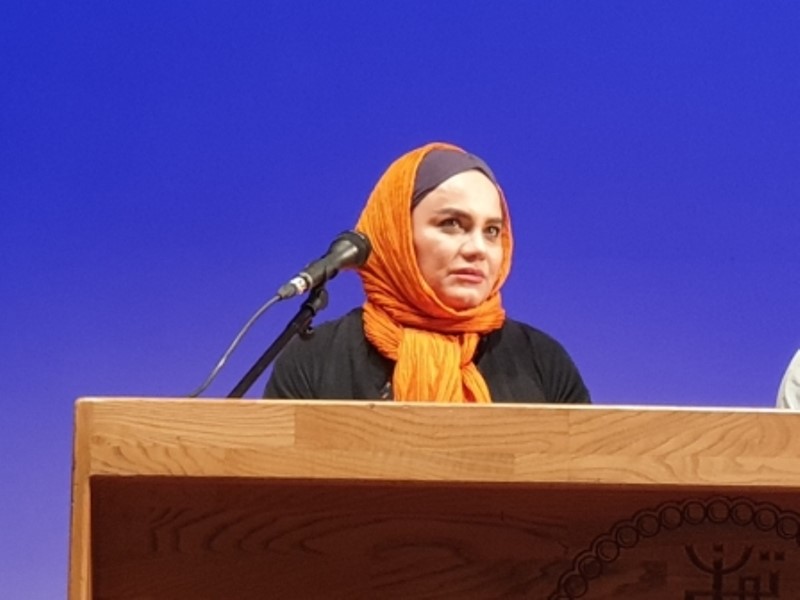– Narges Abyar, the Fajr Film Festival laureate, said that cinema can play a much bigger role in raising awareness against extremism than other written forms of arts and literature.
Abyar, the Iranian female filmmaker with a few number of outstanding works, but all winning awards, attended a private screening of her latest film themed ‘When the Moon was Full’ ‘ in University of Tehran on Tuesday.
The festival version of the movie was screened and was well received by the students who filled up the hall.
The film won several prizes and awards at the 37th edition of the Fajr International Film Festival (FIFF) which was held April 18- 26 in Tehran.
Following the screening, the filmmaker answered a few questions raised by the audience on her film.
‘When the Moon was Full’ is a reality based story of a romantic relationship between Abdulmalek Rigi’s brother, ring leader of the terrorist group known as ‘Jundullah’, and his wife.
The film depicts the influence of extremist thought over the love, as well as the fate of innocent civilians who fell prey to the terrorists.
The female Iranian filmmaker believes that cinema can speak much louder than many other forms of art and literature.
‘What else can be more effective in awareness-raising than film? In my opinion, a film can do the job of thousands of books, articles and speeches in confronting extremism,’ she says.
Commenting on the warm welcome of the foreign guests of FIFF, Abyar says, ‘Extremism is currently a concern shared by the entire world, including the US, Europe and Asia. It is denounced by all moderate states and people irrespective of the place it occurs.’
She expresses the hope that such themes to be used increasingly in order to exert an influence upon.
Answering a question on the disproportionate violence and action displayed in the film and the fair nature of a female filmmaker, she said that despite the challenges she predicted might face before launching the project, she took many risks to illustrate the confrontations of love and religious extremism in the feature film.
‘I am generally a risk-taker who does scared of the difficulties throughout the course of filmmaking,’ she says.
As to the reasons she did not address other issues including the underlying causes of inclination of the youth in the northeastern border region of Iran to extremism, she says that the scope of the film did not let her extensively elaborate on side issues, but the director also adds that at some parts of the film the issues were addressed.
Despite the limitations; however, she stresses that economic interests did not prevent her from doing some certain things, including some necessary sequences in the film.
‘I was pursuing a goal by making the film and I cannot sacrifice the goal for financial incentives,’ she says.
The film was made on the basis of existing documents, including the videos released by the extremist group itself, the filmmaker says.
Criticizing the media at the time of the terrorist attacks for associating them with the entire ethnic tribe of Rigi in the southeastern part of Iran, the female filmmaker said, ‘Rigi is a noble large family in the region with anti-colonialism background, and it was a mistake to use the tribe name who has raised many intelligent and educated figures to reportedly referr to a few extremist figures.’
The head of the terrorist group ‘Jundullah’ was detained and executed by Iranian security forces in 2010. The group has reportedly killed hundreds of Iranian civilians as well as military or police forces.
Irna



